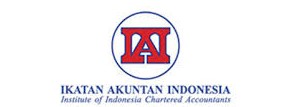Pengaruh Probability to Audit dan Machiavellianism terhadap Tax Evasion: Studi Eksperimental pada Mahasiswa S1 Akuntansi Universitas Negeri Padan
Abstract
This study aims to analyze the effect of probability to audit and Machiavellianism on tax evasion behavior. There are two approaches to explain the factors that influence taxpayer behavior on compliance and tax evasion, named the economic approach (external factors) and non-economic approach which is the socio-psychological approach (internal factors). This study used a quasi-experimental design with 2x2 mixed factorial design to test the effect of probability to audit (external factors) and machiavellianism (internal factors) on tax evasion behavior. The hypothesis in this study tested by using repeated measures ANOVA. The results of this study indicate that subjects in a low probability to audit condition tend to commit tax evasion. Also, the results of this study found that there is no influence between a high-machiavellian subject and a low-machiavellian subject on tax evasion behavior. Furthermore, the results of this study found that there is interaction between probability to audit and machiavellianism on tax evasion behavior.







.png)
.png)
